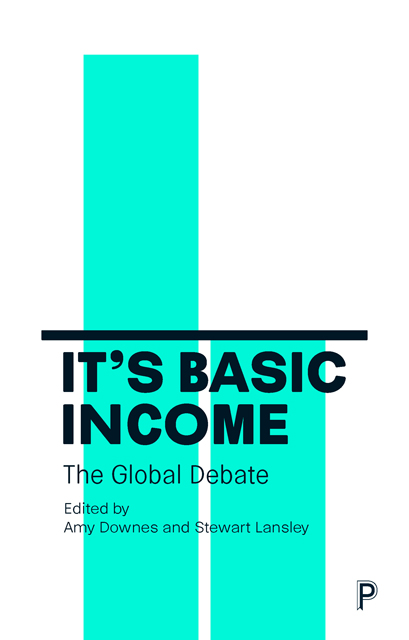20 - A basic income and the democratisation of social policy
Published online by Cambridge University Press: 11 April 2023
Summary
‘… a basic income … is essentially another social policy prescription that has developed top-down and been advanced by a relatively narrow body of ‘experts’.’
The idea of a basic income has a long history, has attracted wide academic and political interest and currently feels like the ‘next big thing’ in social policy. Of course it has its doubters as well as its supporters and as many arguments have been offered against it by critics, as have been in its support by enthusiasts. For example, a Commission of the German Parliament concluded in 2013 that it was ‘unrealizable’, identifying an intimidating list of perceived deficiencies to back up its claim:
• It would cause a significant decrease in the motivation to work among citizens, with unforeseen consequences for the national economy.
• It would require a complete restructuring of the taxation, social insurance and pension systems, which would cost a significant amount of money.
• The current system of social help in Germany is regarded as more effective because it’s more personalised: the amount of help provided is not fixed and depends on the financial situation of the person; for some socially vulnerable groups the basic income could be not sufficient.
• It would cause a vast increase in immigration.
• It would cause a rise of the shadow economy.
• The corresponding rise of taxes would cause more inequality: higher taxes would translate themselves into higher prices of everyday products, harming the poor.
• No viable way to finance basic income in Germany was found.
On the other hand, advocates of a basic income highlight how radical an innovation it is – a real break from the social policy past – and argue that it can surmount many of the weaknesses of traditional approaches to social security, notably means testing.
What I want to explore in this article is neither the claims nor counter claims of advocates or opponents, rather I want to examine how far it represents a break from the dominant tradition of social policy and addresses the key concerns of those who have most challenged these: those people who experience social policy’s heavy end and long-term effects. I begin by exploring the shortcoming of that dominant tradition before considering basic income in relation to them.
- Type
- Chapter
- Information
- It's Basic IncomeThe Global Debate, pp. 103 - 108Publisher: Bristol University PressPrint publication year: 2018



